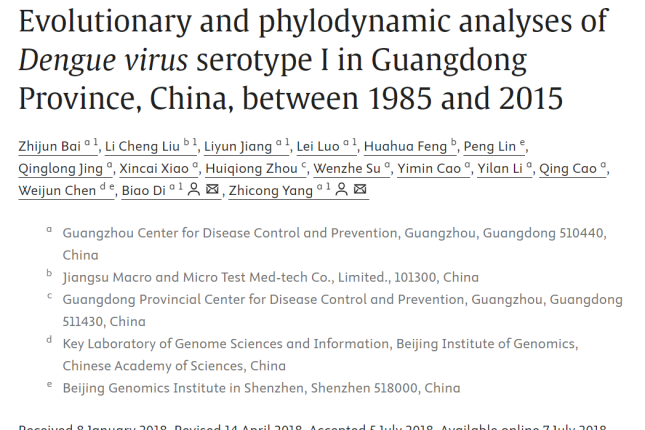What is dengue fever and DENV virus?
Dengue fever is caused by the dengue virus (DENV), which is primarily transmitted to humans through bites from the infected female mosquitoes, particularly Aedes aegypti and Aedes albopictus.
There are four distinct serotypes of the virus (DENV-1, DENV-2, DENV-3, and DENV-4). Infection with one serotype provides lifelong immunity to that serotype but not to the others.
Dengue is predominantly spread through mosquito bites. Key aspects of its transmission include:
Vector: The Aedes aegypti mosquito thrives in urban environments and breeds in stagnant water. Aedes albopictus can also transmit the virus but is less common.
Human-to-Mosquito Transmission: When a mosquito bites an infected person, the virus enters the mosquito and can be transmitted to another human after an incubation period of about 8-12 days.
Why we have dengue fever even in non-tropical countries?
Climate Change: Rising global temperatures are expanding the habitat of the Aedes mosquitoes, the primary vectors for dengue.
Global Travel and Trade: Increased international travel and trade can lead to the introduction of dengue-carrying mosquitoes or infected individuals to non-tropical areas.
Urbanization: Rapid urbanization without sufficient water management,creating breeding grounds for mosquitoes.
Mosquito Adaptation: The Aedes mosquitoes, particularly Aedes aegypti and Aedes albopictus, are adapting to more temperate climates of places like parts of Europe and North America.
These factors contribute collectively to the growing presence of dengue in non-tropical regions.
How to diagnose and treat dengue fever?
The clinical diagnosis of dengue can be tricky due to its nonspecific symptoms, which can mimic other viral illnesses.
Symptoms: Initial symptoms typically appear 4-10 days after infection including high fever, severe headaches, retro-orbital pain, joint and muscle pain, rash, and mild bleeding. In severe cases, dengue can progress to dengue hemorrhagic fever (DHF) or dengue shock syndrome (DSS),which can be life-threatening. Early detection helps in managing the symptoms before getting worse.
Detection methods for dengue:
Serology Tests: Detect antibodies (IgM and IgG) against DENV, with IgM indicating recent infection and IgG suggesting past exposure. These tests are commonly used in clinics and centralized laboratories to confirm current or previous infections during recovery or in asymptomatic individuals with a history of exposure.
NS1 Antigen Tests: Detect the non-structural protein 1 (NS1) during the early phase of infection, serving as an early diagnostic tool, ideal for rapid detection within the first 1-5 days of symptom onset. These tests are often performed in point-of-care settings such as clinics, hospitals, and emergency departments for quick decision-making and treatment initiation.
NS1 + IgG/IgM Tests: Detect both active and past infections by testing for viral proteins and antibodies in the blood, making them useful for distinguishing between recent infections and past exposure, or identifying secondary infections. These are typically used in hospitals, clinics, and centralized laboratories for comprehensive diagnostic evaluations.
Molecular Tests: Detect viral RNA in the blood, most effective within the first week of illness, and are used at the onset of infection for precise confirmation, especially in critical cases. These tests are primarily conducted in centralized laboratories with molecular diagnostic capabilities due to the need for specialized equipment.
Sequencing: Identifies the genetic material of DENV to study its characteristics, variations, and evolution, crucial for epidemiological research, outbreak investigations, and tracking virus mutations and transmission patterns. This test is performed in research laboratories and specialized public health labs for in-depth genomic analysis and surveillance purposes.
Currently, there is no specific antiviral treatment for dengue. Management focuses on supportive care such as hydration, pain relief and close monitoring. It should noted taht early informed identification of dengue infection can prevent serious results.
Macro & Micro-Test is offering various diagnostic kits of RDTs, RT-PCR and Sequencing for dengue detection and epidemic monitoring:
Dengue Virus I/II/III/IV Nucleic Acid Detection Kit- liquid/lyophilized;
Dengue NS1 Antigen, IgM/IgG Antibody Dual Detection Kit;
HWTS-FE029-Dengue NS1 Antigen Detection Kit
Dengue Virus Types 1/2/3/4 Whole Genome Enrichment Kit (Multiplex Amplification Method)
Related paper:
https://www.sciencedirect.com/science/article/abs/pii/S0168170218300091?via%3Dihub

Post time: Oct-21-2024
